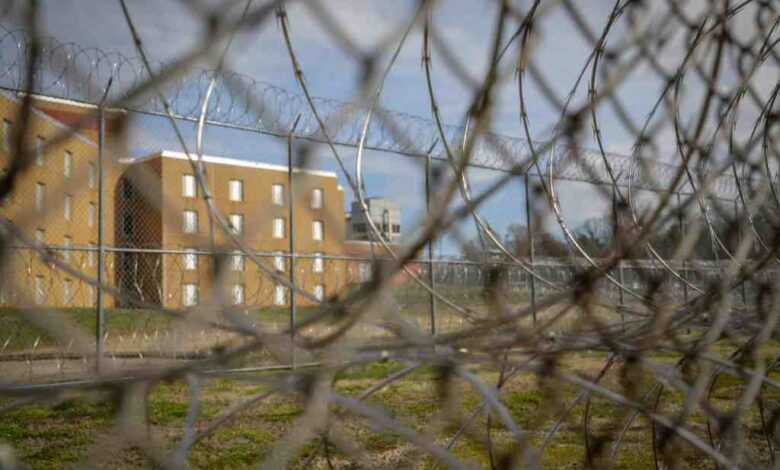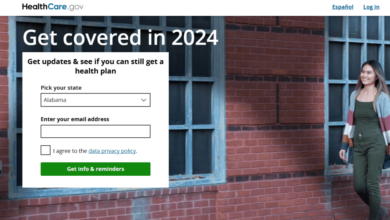Copays pose a barrier for incarcerated people seeking medical care


By Rachel Crumpler
Prisons are constitutionally mandated to provide health care to incarcerated people, but that doesn’t mean it has to be provided for free.
And in North Carolina — along with almost 40 other states — the costs can add up when prison systems charge incarcerated people a copay for select health care services.
The N.C. Department of Adult Correction charges $5 for medical and dental services that are initiated by an incarcerated person and $7 for a self-declared emergency visit, according to the prison system’s copay policy. The fee is not charged if staff determine that an actual emergency occurred.
While these fees may seem small, advocates say they can be a financial barrier in the context of low prison wages, leading some people to delay or even avoid care.
In fiscal year 2022-23, 90 percent of incarcerated people assigned to work programs, worked inside prison facilities, earning 40 cents to $1 per day. Those who worked for Correction Enterprises earned up to $3 per day.
“I know a lot of people don’t want to call [for medical help] because of the copay,” said Kayla Dillard, executive director of NC-CURE, a prison reform advocacy group. “They’re limited with how much money they get each month, and if they have to do a copay, they have even less.
“You can work all week to get $5.”
Research shows that can be a problem for the health of incarcerated people and people who are trying to reenter society after incarceration — not just in North Carolina, but across the country. And some states are having second thoughts about the policy.
Here to stay
Vera Crump’s son is incarcerated at Randolph Correctional Center. Since he went to prison over four years ago, she said he’s had to request medical care many times and pay the copays. Fortunately, she said, she and her daughter can afford to keep funds in his account, steadily contributing $120 per month so that he doesn’t have to worry about whether to use the money for a medical call, food from the commissary, toiletries or phone calls with loved ones.
But, she said, she knows this isn’t the reality for everyone, and that concerns her.
Some prison health care visits do not require a copay, including medical care initiated by prison facilities, such as initial screenings, physicals and emergency care, according to the N.C. Department of Adult Correction’s copay policy.
Dillard and other advocates would like this to be true of all medical care.
“There’s already a struggle to get medical help in certain facilities,” Dillard said. “Copays just make it worse.”
However, it doesn’t appear changes are on the horizon.
Brad Deen, a N.C. Department of Adult Correction spokesperson, said in a statement to NC Health News that there is “no formal discussion surrounding copay policy at this time.”
He explained that the intent of copays is to prevent overuse and abuse of health care resources.
“We’re short-staffed in our health care positions, and we need to ensure their time is used efficiently and effectively,” Deen said.
Regardless of ability to pay, the N.C. Department of Adult Correction states that it does not deny medical care. If someone has insufficient funds for a copay at the time of medical care, a lien will be applied to their account and any funds later added will be automatically deducted to satisfy outstanding copay expenses.
The N.C. Department of Adult Correction’s copayment policy is available online.
A barrier to care
Emily Lupez, a primary care doctor at Boston Medical Center and researcher at Boston University, found in a study published last month that prison copays are associated with poorer health care access.
Lupez and other researchers analyzed a nationally representative sample of people in state and federal prisons across the U.S. using data from the 2004 and 2016 Bureau of Justice Statistics’ Survey of Prison Inmates (the 2016 data was only released in 2021) to gauge changes in the health status of incarcerated people and their health care access.
The study found that while the share of people in U.S. prisons with serious health problems is increasing, about 90 percent of incarcerated people with a chronic illness face copays that can put that needed care out of reach. In particular, when copays exceeded one week’s prison wages, incarcerated people more often went without seeing a medical provider.
Minimum wage for prison jobs ranged from 4 cents to 40 cents an hour, making a $2 to $8 copay equivalent to many hours of work.
Lupez said the association between copays and reduced access to health care isn’t surprising. It’s the same trend seen in the community, she said.
“Copays worsen access to care and health outcomes,” Lupez said. “Oftentimes it results in more costly health care because people wait until they’re in crisis mode, and there are complications that then cost more later on.”
The relationship between copays and less access to care is especially problematic given that the prison population is increasingly older and sicker, Lupez said. As a result, more health issues will likely emerge among incarcerated people, she said, imposing potentially higher financial burdens on incarcerated people and their families — who are disproportionately low-income — as they navigate paying copays for more medical visits.
A decades-long practice
States first instituted the copays in the 1990s as a way to control health care costs, with each state implementing its own policies and prices. Since 1997, North Carolina prisons have charged incarcerated people a fee for select medical care.
Congress also mandated the practice in federal prisons in 2000 with the enactment of the Federal Prisoner Health Care Copayment Act.
Lupez said prison administrators’ rationale for keeping copays — deterring abuse of health services and controlling costs — can be short-sighted. If people skip preventative care because they can’t afford copays, she said, that could lead to prison systems footing the bill for more expensive treatments and emergency care later on.
Dillard argued that’s an overblown concern, and she said people call for medical help when they believe they need it.
The National Commission on Correctional Health Care, an organization working to improve health care in jails, prisons and juvenile confinement facilities, opposes medical copays that may create disincentives or restrict people from seeking medical care.
“Evidence suggests that such mandates discourage both essential and less critical health care, with adverse effects on people’s health,” reads the group’s position statement, which was most recently reaffirmed in August 2022.
Additionally, the National Consumer Law Center released a report on medical debt behind bars this month, finding that prison copays often lead people to accumulate debts that can make reentry tougher once their incarceration is completed. The report recommends ending copays to help combat this problem.
While some states try to recoup outstanding copays from someone who’s completed their sentence and been released, the N.C. Department of Adult Correction does not do this.
“That population already faces obstacles in their re-entry, which we’re striving to make as smooth as possible,” Deen, the department spokesperson, said in a statement.
Momentum building
In recent years, a handful of states have taken action to eliminate prison copays.

Lupez said she believes the COVID-19 pandemic, which ravaged prisons across the nation, has been a catalyst for increased momentum in rethinking copay policies as many prison systems suspended some copays for a period of time to respond to the increased health challenges behind bars.
Nevada passed legislation in 2023 to end prison copays. The policy took effect this year, transforming Nevada from a state that previously had one of the highest medical copays at $8 per visit to among the first batch of states to eliminate the fees.
At the federal level, Congresswoman Eleanor Holmes Norton (D-D.C.) introduced a bill in July to prohibit the Federal Bureau of Prisons from charging copays for health care visits.
“While copays can reduce unnecessary appointments, we should be encouraging such individuals to seek medical care before their conditions become worse and more expensive for taxpayers,” Norton said in a statement about the legislation.
Increased costs and health impacts from delayed care are not solely a prison issue, Lupez said.
“The majority of people in prison will be released, and then the burden of trying to care for this person is going to fall to the community and to the community resources,” Lupez said.
The post Copays pose a barrier for incarcerated people seeking medical care appeared first on North Carolina Health News.
